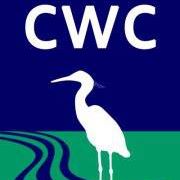Louisiana groups get funding for Gulf oil spill research
BY BOBBY LAMB| BLAMB@THEADVOCATE.COM
Nov. 14, 2014
Three organizations with ties to Louisiana are among 12 research groups sharing $140 million in grants to conduct scientific studies on the effects of oil, dispersed oil and dispersants on the Gulf of Mexico’s ecosystem and on public health.
The groups were selected by the Gulf of Mexico Research Initiative to carry out research from 2015 through 2017 in the aftermath of the BP oil spill in the Gulf. GoMRI is a 10-year research initiative established in 2010 and funded by a $500 million commitment by BP.
Listed among the grant recipients Friday are the Louisiana Universities Marine Consortium in Chauvin, with Nancy Rabalais, its executive director, as lead investigator; the University of Louisiana at Lafayette, with Natalia Sidorovskaia as the lead investigator; and RAND Corp. Gulf States Policy Institute, whose website shows offices in New Orleans and Jackson, Miss.
Rabalais said the LUMCON group will receive about $16.1 million toward its research, and Sidorovskaia said the University of Louisiana at Lafayette group is getting $5.2 million.
An official with the RAND Institute could not be reached. Its grant award was titled in a GoMRI press release as “Consortium for Resilient Gulf Communities.”
Rabalais said the Gulf of Mexico Research Initiative funding is “good news for Louisiana, good news for oil research and good news for LUMCON.”
The LUMCON group includes 16 institutions, among them LSU and the LSU AgCenter.
Rabalais said the group will have to prioritize the research proposals it submitted to fit the funding being received.
The research could include studying the redistribution of oil from the BP spill in estuaries that can occur during hurricanes, and following certain components of oil and toxins in the ecosystem over the next five to 10 years; habitat loss and food web alterations; behavioral changes in wildlife; continuing work on shoreline erosion; and studying experimental marshes or marsh components doused with oil.
The University of Louisiana at Lafayette research group will include the University of New Orleans and three out-of-state institutions, Sidorovskaia said. Corporate participants in the research include C&C Technologies in Lafayette and Proteus Technologies in Slidell.
The research group will study the impact of oil exploration on mammals in the Gulf, particularly sperm whales, beaked whales and dolphins. Monitoring systems tested could include the use of gliders, autonomous surface vehicles and buoys, with a recommendation being made on the best system or combination of technologies for such research.
GoMRI is administered by an independent research board, which consists of 20 experts in science, research administration and public health. This is the second round of this funding to research groups.
The 12 research groups were named Friday following a competitive, merit-review process that evaluated research applications submitted to the Gulf of Mexico Research Initiative. Forty-seven research proposals were received.
In general, researchers with the 12 groups are studying the implications of events such as the Macondo oil well blowout, and developing improved spill mitigation, oil and gas detection and remediation technologies.
Dr. Rita Colwell, chairman of the GoMRI research board, noted it was “clear that research on public health is needed.”
“I’m pleased that in this round of awards there are funds to study public health issues in the Gulf of Mexico region associated with the oil spill,” she said. “We are also funding research focused on increasing our knowledge of the biology of the Gulf and the interaction of oil with the ecosystem.”
Colwell noted that “a significant benefit of our prior support is increased collaboration among scientists and institutions across the Gulf. This round of funding will continue to build a research community focused on understanding the dynamics of the Gulf of Mexico ecosystem.”
Other consortia receiving grants are Nova Southeastern University; University of Miami — Rosenstiel School of Marine and Atmospheric Science; University of Texas at Austin; University of Southern Mississippi; Marine Environmental Sciences Consortium/Dauphin Island Sea Lab; Texas A&M University; University of Miami; University of Georgia; and University of South Florida.

